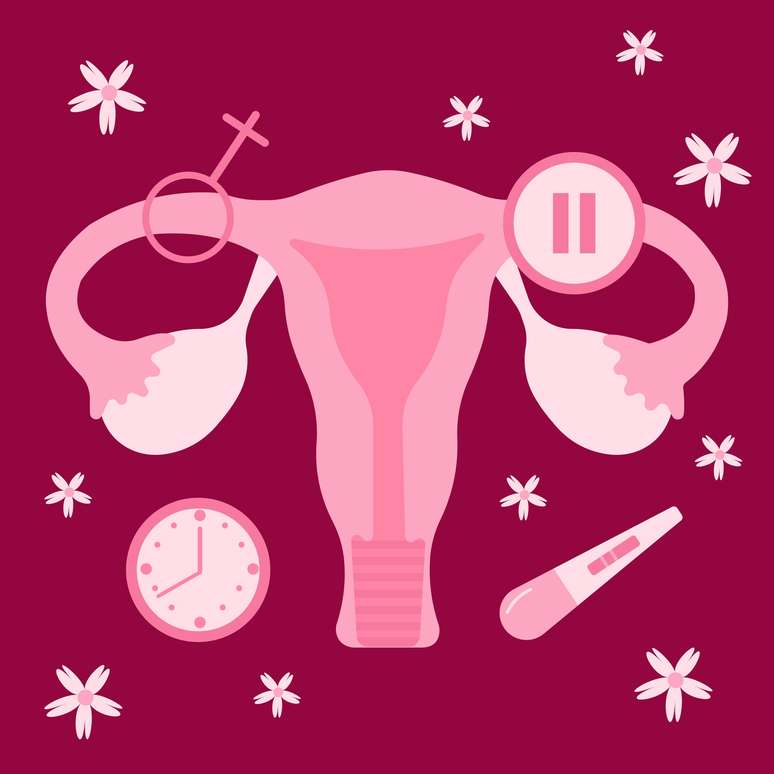For some women, their last period may come sooner than expected
Most women enter menopause around age 50. But there are many cases when the last menstruation occurs earlier. There is not always a cause that explains the situation, which is why it is not even possible to predict who will have a shorter reproductive phase.
It is important to emphasize that the diagnosis of menopause occurs only after a woman has gone 12 months without menstruating. Before this it is not possible to be sure that there will no longer be a menstrual cycle, especially since hormone dosage tests can vary greatly.
Early or premature menopause
“The so-called early menopause, which occurs between the ages of 40 and 45, affects approximately 5-10% of women,” says gynecologist Igor Padovesi, a specialist certified by the North American Menopause Society and member of the Febrasgo (Brazilian Federation). of the Gynecology and Obstetrics Associations.
When it occurs before the age of 40, menopause is called premature, also called premature ovarian failure. The estimate is that this occurs in 1% of women.
In an age where many women wait to have children later, the situation can be difficult. Padove reports that in some cases, not very frequent, women discover they are in menopause just by trying to get pregnant.
“This is the case, for example, of women who previously used contraceptives or IUDs, and therefore did not menstruate, and when they stopped getting pregnant they ended up discovering that they were in early menopause,” she says. In these cases it is possible to realize the dream of pregnancy with donated eggs.
Cardiovascular risk
In addition to the impact on fertility and all the already known symptoms of hormonal decline, such as hot flashes, insomnia, dry skin and mucous membranes, prematurely stopping menstruation can have long-term effects on a woman’s health.
“The big and main problem is that, if not treated with the correct hormone therapy, early menopause increases the risk of heart attack, stroke and cardiovascular disease”, underlines the doctor.
What are the causes?
The specialist explains that, in most cases, it is not possible to identify a specific cause of menopause or premature ovarian failure.
“It could have autoimmune, genetic causes; linked to treatments such as chemotherapy, radiotherapy and, possibly, other drugs that can compromise ovarian function,” explains Padovesi. Other problems that may be involved are ovarian surgery or, more rarely, fragile X syndrome, related to the X chromosome.
Shortage of specialists
For a layman it is strange to imagine that a gynecologist does not have adequate training to diagnose and treat menopause. But this is the reality in Brazil and other countries.
Recent surveys indicate that only 20% of obstetrics and gynecology residency programs offer training on the topic, while 80% of medical residents report feeling “uncomfortable” discussing or treating menopause.
“I see women who come to me after going to different professionals who have not treated early menopause, which is a bit absurd, but still very common,” comments Padovesi.
To make matters worse, symptoms of so-called perimenopause can appear three to 10 years before a woman stops menstruating. “It is very difficult to establish when it actually starts, because the symptoms are very vague, non-specific, they are multiple, there is a wide spectrum of symptoms that are attributable to this phase and in this transition period they fluctuate”, explains the gynecologist. And even laboratory tests do not show whether a woman is near or far from menopause.
Other reasons for not having your period
The doctor reminds that there are many possible causes why a woman may stop menstruating, in addition to premature ovarian failure, such as polycystic ovary syndrome, thyroid disorders and increased prolactin (hyperprolactinemia).
Treatment of some diseases can also cause menstrual changes, as well as physical stress (such as excessive physical activity, common in athletes) or even mental stress. In any case, it is important to consult your gynecologist to find out what is happening.
Source: Terra
Ben Stock is a lifestyle journalist and author at Gossipify. He writes about topics such as health, wellness, travel, food and home decor. He provides practical advice and inspiration to improve well-being, keeps readers up to date with latest lifestyle news and trends, known for his engaging writing style, in-depth analysis and unique perspectives.









